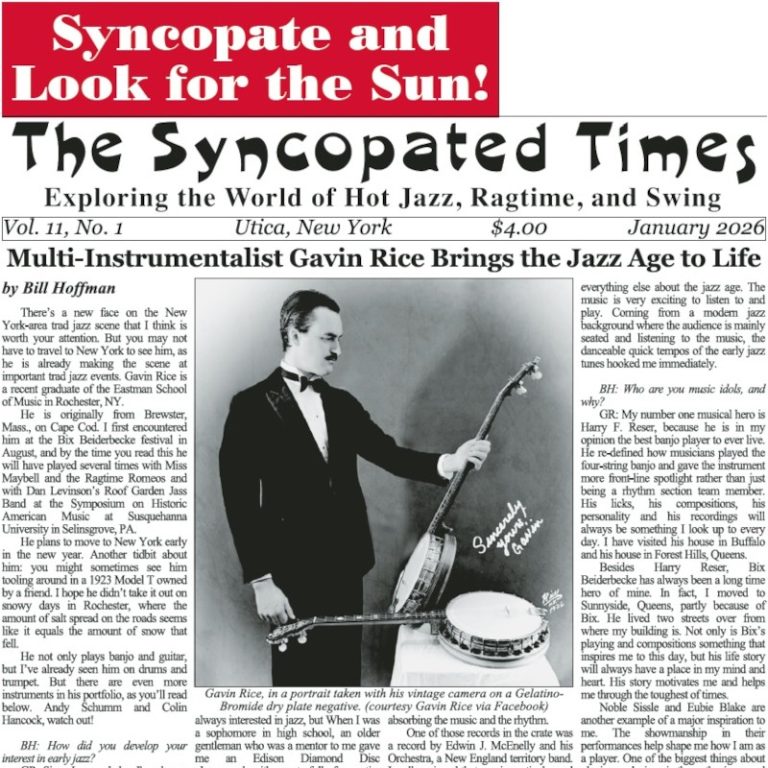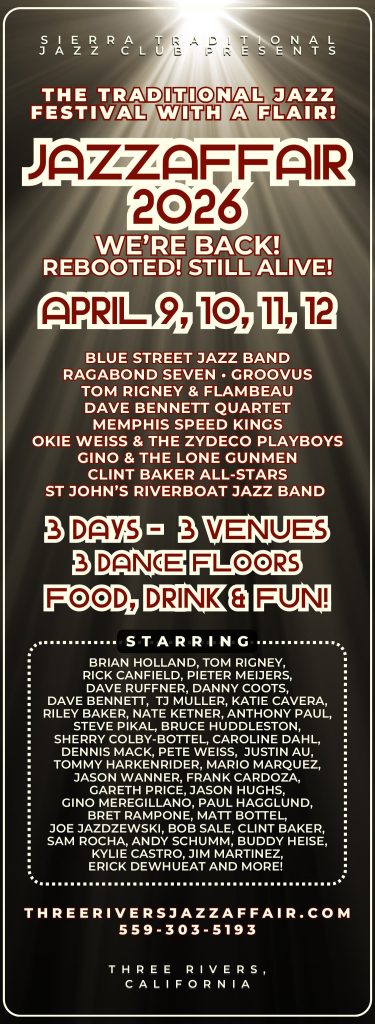While perusing the recent Syncopated Times article “Art of the Duet” (TST, August 2024) about jazz duet albums recorded over the years, some reader is bound to ask “Hey, but what about ________? That article featured well known musicians primarily, but this one features one of those “Hey, but what about” players that fell through the cracks, generally unknown yet very worthy of praise. He appeared on two outstanding duet albums among the few that he played on throughout his career. He was cornetist Jim Goodwin.
Goodwin was a natural who couldn’t read music. While he was a swinging, self-taught pianist as a second instrument, his first-rate cornet playing dripped emotive heat and passion. Drummer Jeff Hamilton, who played with him in the band Sunset Music Company, swore that Jim Goodwin on one occasion had played the single hottest note that he had ever heard. Although his technique wasn’t dazzling, his sense of swing phrasing was massive. His creative ideas were enhanced by shakes, growls, mutes, half-valve bent notes and expressive tone, usually not a typical “pretty” trumpet sound but more of a declarative shout. With a huge repertoire and personal approach, the closest known player to compare him to would be Henry “Red” Allen.
Virtually all musicians that heard him admired him, but his inability to read music kept him out of many groups, yet for over a decad
You've read three articles this month! That makes you one of a rare breed, the true jazz fan!
The Syncopated Times is a monthly publication covering traditional jazz, ragtime and swing. We have the best historic content anywhere, and are the only American publication covering artists and bands currently playing Hot Jazz, Vintage Swing, or Ragtime. Our writers are legends themselves, paid to bring you the best coverage possible. Advertising will never be enough to keep these stories coming, we need your SUBSCRIPTION. Get unlimited access for $30 a year or $50 for two.
Not ready to pay for jazz yet? Register a Free Account for two weeks of unlimited access without nags or pop ups.
Already Registered? Log In
If you shouldn't be seeing this because you already logged in try refreshing the page.




